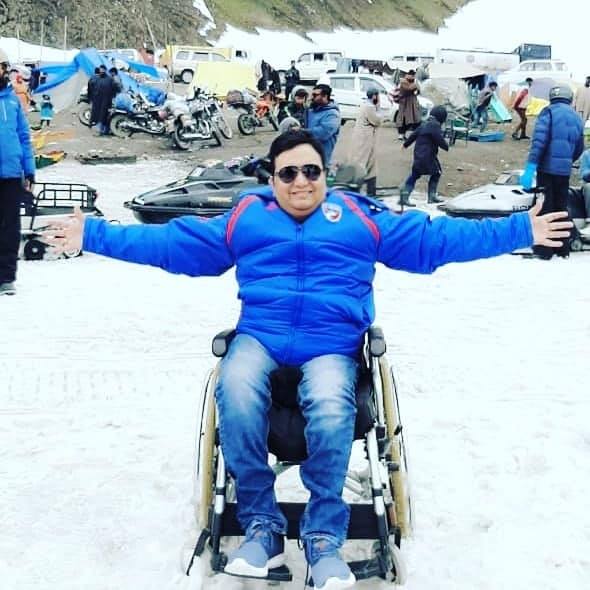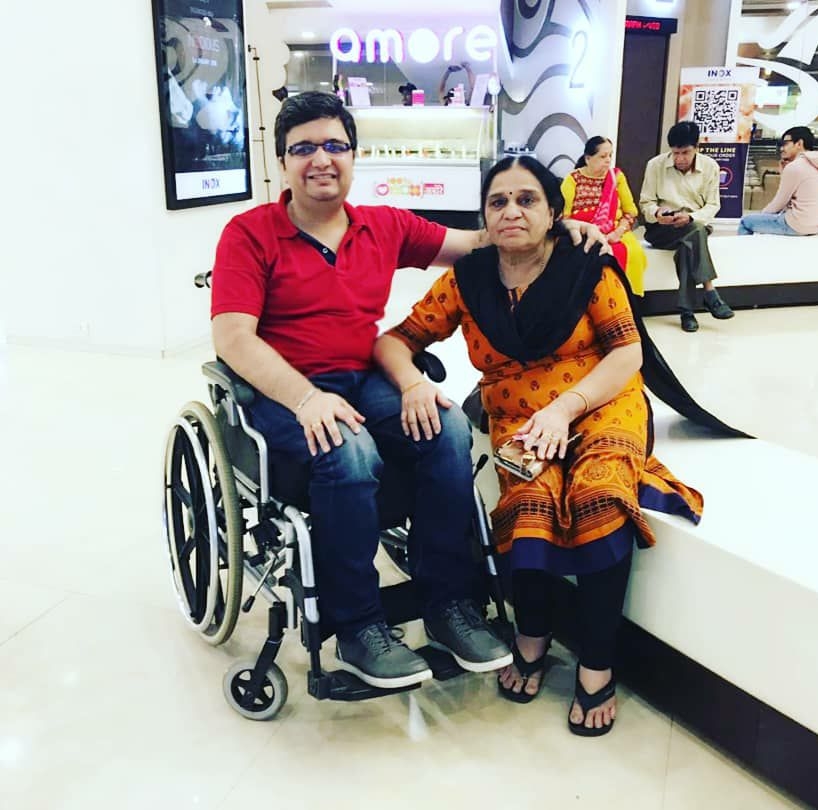It seemed like a regular Tuesday when 21-year-old Chirag Chauhan from Mumbai left office early to make it home before twilight. But somewhere between Andheri and Santacruz at around 6.20 pm, his life changed forever.
It was during a series of blasts across railway stations on 11 July 2006 when Chirag suffered a debilitating spinal cord injury. He says it took him close to six months to come to terms with what happened to him. Nevertheless, he picked up the pieces of his life and moved on.
Speaking to The Better India, Chirag says, “I was what is often described as a below average student all through school. If I managed to get 50 per cent, I considered it a job well done.” While his school days passed by in this manner, the loss of his father when he was all of 18, left him shocked.
“My father, unfortunately, did not have the means to pursue what he wanted to academically, and given that I could, I did not want to waste that chance,” he says. Once Chirag got into college, he started doing well and also managed to maintain a first division all through. In 2005, Chirag had cleared his CA inter second level examination and was undergoing his Articleship, which usually is for a duration of three years. Things were going well for him and in hindsight, he says, him being on that train in 2006 was a freak accident.
“It took me a very long time to come to terms with my injury and everything that had happened. Until then I had not even heard the term paraplegic,” he says.

In some cases, there are patients who recover through medication and physiotherapy after two years, but in Chirag’s case, the issue persisted.
Once Chirag was discharged from the hospital and came back home, he mentions how things had changed. He would on an average spend close to seven hours on physiotherapy and recovery sessions each day, followed by another seven hours preparing for the CA examination. “Until I cleared my final examination this is the schedule I followed,” he says. Even after clearing the exams, it was a tough ride for Chirag, who says that many places he had applied to rejected him outright citing his disability as a concern and a few other workplaces were not wheelchair friendly.
Having cleared the CA Final in his first attempt and thereafter the CA Inter level in the second attempt, Chirag shares some tips for other aspirants. The biannual exams conducted by the ICAI (Institute of Chartered Accountants of India), the apex body of accounts in India, are held in May and November.
Manage your time
This is a very crucial aspect that aspirants preparing for the CA exam must keep in mind while preparing. Chirag says that while there were various distractions while preparing he chose to put all that aside and focus all his energy on studying. Make a timetable or schedule and ensure that you complete the syllabus you set out to do each day. Keep the time spent on social media and watching television to a bare minimum.
Attempt practise papers
To get a sense of where aspirants stand, attempting practise papers is very important. It will not just help in boosting one’s confidence levels but also help assess and review your preparedness. Conducting a SWOT (strengths, weaknesses, opportunities and threats) analysis on your practise papers will also help in understanding one’s strengths and weaknesses.
Stay focussed

There are way too many distractions while one is trying to study for the exams and Chirag says that staying 100 per cent focussed on the goal is the only way forward. Treat yourself with breaks only once you have completed the portion you set out to do. “I would spend close to seven hours each day in preparation for the examination,” says Chirag.
Expand your horizon
Chirag speaks about how he would often try and read company balance sheets and annual reports adding that having a good foundational understanding of math and accounting will also help a great deal while preparing. “My father used to invest in the stock market and I would diligently track them,” he says. Keeping the larger picture in mind while studying gives you a better perspective.
Find resources that work for you
In Chirag’s case, he was forced to do self-study since most of the popular classes in the city were not wheelchair-friendly. “Getting to those coaching centres and then making my way up the class was a huge task. This pushed me to find online resources and work by myself,” he says. He also realised that he was able to cover a larger syllabus on his own and says that he relied on notes of various coaching centres as additional resources.
If you wish to reach out to Chirag, you can e-mail him at chirag@cachauhan.in.
(Edited by Yoshita Rao)
No comments:
Post a Comment